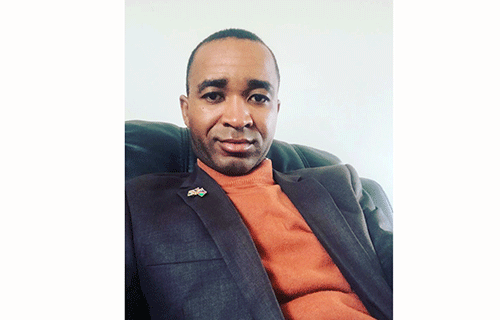Captain Nelson T Kalangula
In an industry that is centred on safety and is costly to enter for operators, nothing appears to be made easier for the less fortunate. Aviation is an expensive career to start with, a normal Private Pilot Licence (PPL) cost at least N$260 000, which does not even guarantee employment as you are not set to be remunerated under the said licence.
To be remunerated in the career of flying aircraft, one has to study/train to a level Commercial Pilot Licence (CPL) initially at the lowest price tag of N$860 000, and upgrade as time and experience progresses to an Airline Transport Pilot Licence (ATPL) for operations on bigger aircraft and of course advancement in an airline flying business. Pilot training costs are per hour basis and mostly influenced by fuel prices, the scarcity of aircraft, flight schools, and instructors for that training, with a possible charge of N$3 200 per hour (rate on a Cessna 172), plus other costs of medical, radio telephony, and ground school.
After the closure of Air Namibia, many of the pilots are still sitting at home jobless, and many others are doing all sorts of low earning jobs to keep afloat. The risk a pilot takes and the lives they carry on board their aircraft when on duty deserve good rewards in monetary and benefits alike.
There are challenges that need attention in order to ensure that the opportunities remain attractive to many. Aviation in Namibia is white-dominated and has a sense of discrimination, which has become a loophole, and often advantage is taken by the privileged individuals who downplay new competitors in the industry. It gives a picture that the new players of non-white are not as qualified to be in the industry, but it is merely to the inherited advantages at hand and this is creating a difficult atmosphere for the less fortunate, and most importantly is a major safety hazard as it creates a perception that safety can be bought, but in actual sense, safety is an attitude.
It is not uncommon to find a black pilot limited to clerk work and the other privileged given flying time. This is how many in those brackets accumulated more flying hours because they are given preference over the others. The recent accident on 17 July 2023 at Swakopmund airfield that took the lives of two fellow aviators (may their souls rest in peace), followed up with a case being opened for alleged fraud of aircraft airworthiness documentation of the helicopter under the registration of V5 – HGG, is one of the classic examples that safety is never worth compromising, and thus can never be bought.
It thus becomes evident that there is a great danger for aviation activities to be in an uncontrolled environment, such as Swakopmund aerodrome/airfield, without any sort of control and safety checks and random inspection, be it from the regulator via its inspectors, or the operators themselves; a recipe for disaster is often brewed up.
It is also at the same Swakopmund aerodrome where I was involved in an incident on 01 May 2019 as a student at a flight school at the time, which landed me being sued for N$2.2 million (which led to a halt in my flying career to date); a case that was given justice at the High Court for lacking locus standi, and is now under appeal at the Supreme Court. One would wonder as to what is really happening in this industry and whether is it really under sufficient scrutiny on safety. NCAA should zoom in more often or else there will be more questions to answer in the future, and perhaps face a possible failure of future ICAO audits. One can finger to discrimination, because of the signs and the sense of discomfort that is felt, which can be seen in cases like the one of Fly-Etosha earlier in 2023, and the now-awaiting judgment case of Menzies Aviation vs Paragon Aviation case/NAC.
It becomes very apparent that fights of this magnitude are taken to court to cause frustration to the defendant and demoralises. In the same vein, it is an old tactic used by the privileged and thus unfair to those who can’t afford the legal expenses. How many have given up by a mere threat of getting fired from a job, losing a contract, and a lawsuit? This is a tactic disguised to keep many silent on critical issues that harm the majority and benefit the few. This is harmful to the development of any country and a danger because standards will be lost or demeaned in the mix and will eventually be determined by the dollar.
There is a need for this sector now more than ever, as it brings tourists to our beloved motherland. It is a job provider and still has major potential, and now especially with the oil discovery and other investment attractions, we have to demonstrate that our airspace and its operators are on top of their game on safety.
* Captain Nelson T Kalangula is a patriotic aviator.


